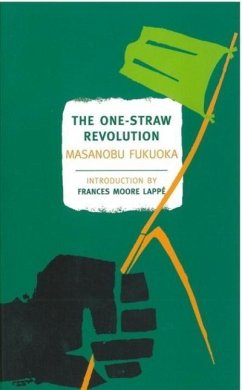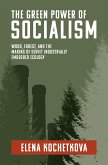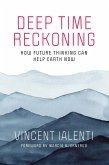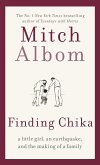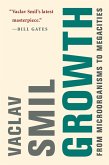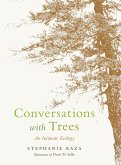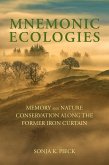Dieser Download kann aus rechtlichen Gründen nur mit Rechnungsadresse in A, B, BG, CY, CZ, D, DK, EW, E, FIN, F, GR, HR, H, IRL, I, LT, L, LR, M, NL, PL, P, R, S, SLO, SK ausgeliefert werden.
"Only the ignorant could write off Fukuoka, who died two years ago at the age of 95, as a deluded or nostalgic dreamer...Fukuoka developed ideas that went against the conventional grain....Long before the American Michael Pollan, he was making the connections between intensive agriculture, unhealthy eating habits and a whole destructive economy based on oil." --Harry Eyres, The Financial Times
"Fukuoka's do-nothing approach to farming is not only revolutionary in terms of growing food, but it is also applicable to other aspects of living, (creativity, child-rearing, activism, career, etc.) His holistic message is needed now more than ever as we search for new ways of approaching the environment, our community and life. It is time for us all to join his 'non-movement.'" Keri Smith author of How to be an Explorer of the World
Japan s most celebrated alternative farmer...Fukuoka s vision offers a beacon, a goal, an ideal to strive for. Tom Philpott, Grist
The One-Straw Revolution shows the critical role of locally based agroecological knowledge in developing sustainable farming systems. Sustainable Architecture
With no ploughing, weeding, fertilizers, external compost, pruning or chemicals, his minimalist approach reduces labour time to a fifth of more conventional practices. Yet his success in yields is comparable to more resource-intensive methods The method is now being widely adopted to vegetate arid areas. His books, such as The One-Straw Revolution, have been inspirational to cultivators the world over. New Internationalist
Every now and then you read a book which is so inspiring and such a pleasure that you feel impelled to stride down the street shouting 'read this!' Well, I ve just read The One-Straw Revolution and I urge everyone to buy or borrow a copy without delay. Tom Hodgkinson, The Idler
[The One-Straw Revolution is] about going with the flow. . . . What could happen if we stopped forcing everything to be perfect? Kristin Wong, Forge
"Only the ignorant could write off Fukuoka, who died two years ago at the age of 95, as a deluded or nostalgic dreamer...Fukuoka developed ideas that went against the conventional grain....Long before the American Michael Pollan, he was making the connections between intensive agriculture, unhealthy eating habits and a whole destructive economy based on oil." --Harry Eyres, The Financial Times
"Fukuoka's do-nothing approach to farming is not only revolutionary in terms of growing food, but it is also applicable to other aspects of living, (creativity, child-rearing, activism, career, etc.) His holistic message is needed now more than ever as we search for new ways of approaching the environment, our community and life. It is time for us all to join his 'non-movement.'" Keri Smith author of How to be an Explorer of the World
Japan s most celebrated alternative farmer...Fukuoka s vision offers a beacon, a goal, an ideal to strive for. Tom Philpott, Grist
The One-Straw Revolution shows the critical role of locally based agroecological knowledge in developing sustainable farming systems. Sustainable Architecture
With no ploughing, weeding, fertilizers, external compost, pruning or chemicals, his minimalist approach reduces labour time to a fifth of more conventional practices. Yet his success in yields is comparable to more resource-intensive methods The method is now being widely adopted to vegetate arid areas. His books, such as The One-Straw Revolution, have been inspirational to cultivators the world over. New Internationalist
Every now and then you read a book which is so inspiring and such a pleasure that you feel impelled to stride down the street shouting 'read this!' Well, I ve just read The One-Straw Revolution and I urge everyone to buy or borrow a copy without delay. Tom Hodgkinson, The Idler
[The One-Straw Revolution is] about going with the flow. . . . What could happen if we stopped forcing everything to be perfect? Kristin Wong, Forge

